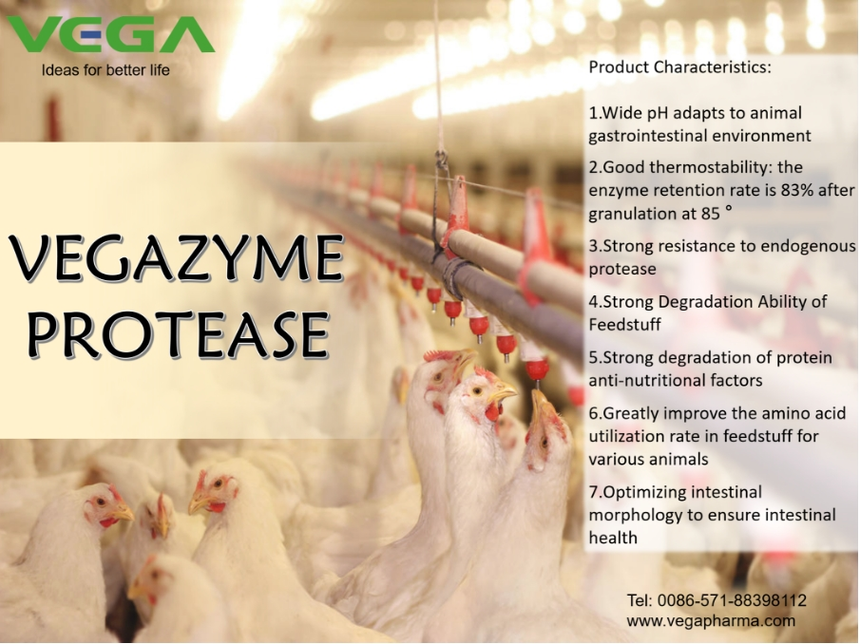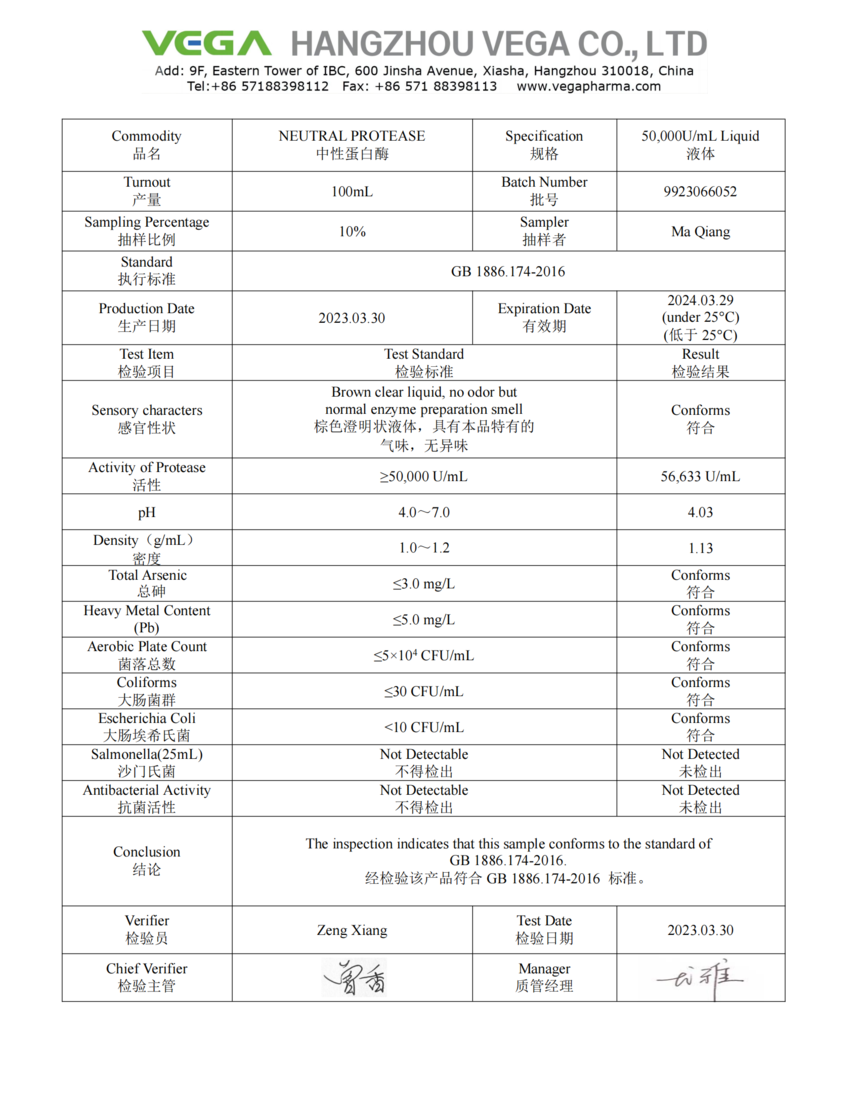|
Protease

Collect
商品说明
Product Characteristics: 1.Wide pH adapts to animalgastrointestinalenvironment2.Good thermostability: theenzyme retention rate is 83% aftergranulation at 85 3.Strong resistance to endogenousprotease 4.Strong Degradation Ability ofFeedstuff 5.Strong degradation of proteinanti-nutritionalfactors 6.Greatly improve the amino acidutilization rate in feedstuff forvarious animals 7.Optimizing intestinalmorphology to ensure intestinahealth Proteases, also known as proteolytic enzymes or proteinases, are enzymes that break down proteins into smaller peptides or amino acids. They play crucial roles in various physiological processes, such as digestion, blood clotting, and tissue remodeling. Chemical Information: Proteases are classified into different families based on their catalytic mechanisms and amino acid sequences. Some of the major types of proteases include serine proteases (e.g., trypsin, chymotrypsin), cysteine proteases (e.g., papain), aspartate proteases (e.g., pepsin), metalloproteases (e.g., matrix metalloproteinases), and threonine proteases (e.g., proteasomes). These enzymes have specific binding sites called active sites, where the protein substrate binds and undergoes hydrolysis. The active site usually contains amino acid residues that are directly involved in the catalysis, such as serine, cysteine, or aspartate. Efficacy: Proteases are highly efficient in catalyzing the breakdown of proteins. Their efficacy lies in their ability to rapidly cleave peptide bonds, leading to the hydrolysis of proteins into smaller fragments or individual amino acids. This process is essential for various biological functions. For example, in the digestive system, proteases are responsible for breaking down dietary proteins into smaller peptides and amino acids, which can be absorbed and utilized by the body. In addition, proteases are involved in immune responses, where they can destroy foreign proteins or pathogens. Moreover, proteases are also used in several industrial processes, such as protein purification, bioremediation, and the production of diverse industrial products. Use: Proteases find extensive use in various fields: 1. Biological Research: Proteases are used in the isolation and purification of proteins for research purposes. They help remove unwanted contaminants and aid in protein characterization. 2. Pharmaceutical Industry: Proteases are utilized in the development and production of therapeutic drugs. For example, proteases like trypsin are used to aid in cell culture processes, where they help dissociate cells into single-cell suspensions. 3. Cleaning and Detergent Industry: Proteases are incorporated into laundry and dishwashing detergents due to their ability to break down protein stains and remove them effectively. 4. Food Industry: Proteases are employed in food processing for tenderizing meats, improving the flavor of fermented foods, refining beer production, and enhancing the texture of certain food products. 5. Textile Industry: Proteases are used in the textile industry for processes like enzyme washing, which gives fabrics a soft and worn-out appearance. Overall, the diverse efficacy and use of proteases make them essential enzymes in various scientific, industrial, and commercial applications. 商品参数
|




















